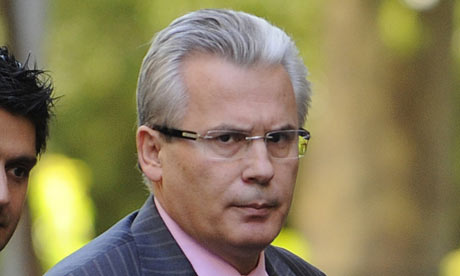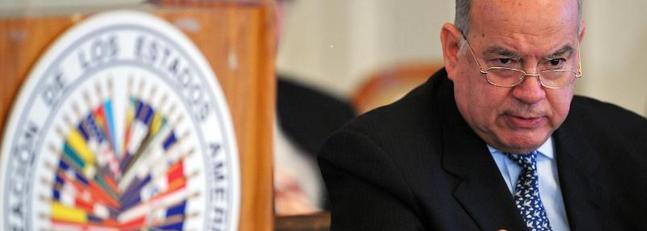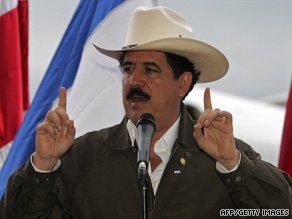
In a perversion of justice the convicted former top aide to ex-President Alberto Fujimori may be a free man in about fourteen months.
Vladimiro Montesinos served
as de facto head of Peru’s intelligence agency as well as Fujimori’s right-hand man between 1990 and 2000. His and Fujimori’s downfall came with the publicizing of secret videotapes he recorded where he doled out hundreds of thousands of dollars in bribes to politicians, the press,
and anyone else in order to stifle opposition. He has been convicted on thirty-one charges including in 2006 when he was sentenced to
twenty years in jail for illegal arms sales to Colombian rebels.
Despite such a checkered past Montesinos could be out of jail in July 2011 over a technicality. According to
Peru’s La República all but one of Montesinos’ sentences will be up by July 2011. Peru’s Supreme Court has yet to ratify Montesinos’ punishment for the aforementioned weapons conviction and they must do so before the July 2011 deadline or else he could be let out of prison.
Montesinos could be tried for human rights abuses for the same 1991 massacre that led to a 25-year conviction against Fujimori. Yet it has been reported that his lawyers
would try to delay such a trial from occurring including using Montesinos’ upcoming surgery as a stalling tactic.
Though Montesinos has been out of power for a decade the repercussions of his malfeasance still affects contemporary Peruvian politics. Justice minister Aurelio Pastor
was fired last week over his links to a Montesinos figure:
(Ex-television owner Jose Enrique) Crousillat was sentenced in 2006 to eight years in prison for taking payoffs from former intelligence chief Vladimiro Montesinos, to run favorable news about President Alberto Fujimori.
Crousillat complained of heart problems and was granted a presidential pardon in December.
But following his release, he was seen in apparently good health in restaurants and on beaches in Lima.
Image - PBS
Online Sources- BBC News, SFGate.com, Wikipedia, La Republica, ADN.es
 * World: Locales around the world including Big Ben (image), the Sydney Opera House, and New York’s Times Square briefly shut off their lights Saturday night as part of Earth Hour 2010.
* World: Locales around the world including Big Ben (image), the Sydney Opera House, and New York’s Times Square briefly shut off their lights Saturday night as part of Earth Hour 2010.

















